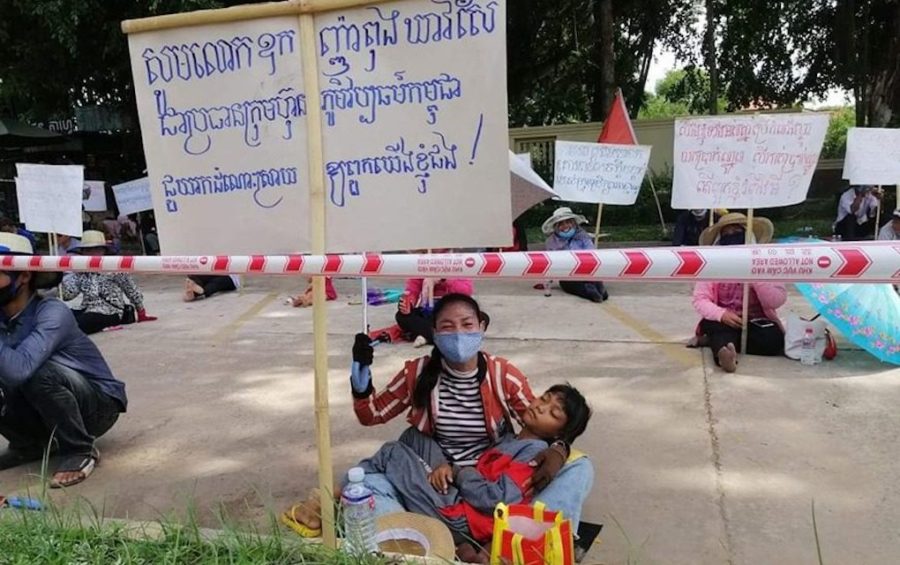Performers and staff from the Cambodian Cultural Village in Siem Reap continued protesting through Thursday, fearing the loss of an administrative office would make working conditions worse in the future.
Dozens of employees of the tourist park held signs outside the complex along National Road 6 starting from August 14 and continuing this week in protest of a 20 percent pay cut since March and loss of a $25 monthly food stipend.
Company representatives have said the salary cuts amid the pandemic-spurred economic downturn, which has hit the tourism sector hard, were made in order to keep over 300 workers employed.
Lim Sopha, the former head of the village’s art office, said the workers’ main concern was their employer’s decision to close his office, which had served as a place where workers could seek support and air their grievances.
Sopha said his salary would remain nearly the same in his new position, after he was demoted from his administrative role to one leading staff in one of the campus’s miniature villages, which display various cultural traditions of Cambodia.
But he said the loss of the art office threatened staff’s future job security, as the five administrative employees functioned as a human resources office — taking attendance, solving disputes and managing job changes — for the tourist attraction’s more than 300 staff members.
“It serves a very important role in terms of coordinating and working with the artists smoothly,” Sopha said. “The loss of [the office] means that now the other workers are on their own, not knowing what positions [the company] could send them to, with no preparation.”
In addition to the 13 model villages, the tourism complex offers traditional dance performances, miniature versions of famous buildings and temples like Angkor Wat and the Royal Palace, and a museum.
Sok Sreymom, who has worked as a choreographer at the village for 17 years, said the company did not have a reason for closing the art office, and that it was an injustice to the workers who had been promoted over the years.
“[The company] demoted the teachers who worked since they were ordinary artists [and became] office heads and teachers, and the employer turned them [back] into ordinary artists,” she said. “How can they agree? And what about us who support them, how can we agree?”
Representatives of Cultural Village management could not be reached for comment, but a manager told government-aligned media portal Fresh News earlier this week that the company offered to pay 80 percent of staff’s wages and reduce work shifts from eight to six hours a day in order to keep workers employed despite a drop in revenue during the pandemic.
All but about 40 protesting workers had accepted the cutbacks, according to the manager.
(Translated and edited from the original article on VOD Khmer)













